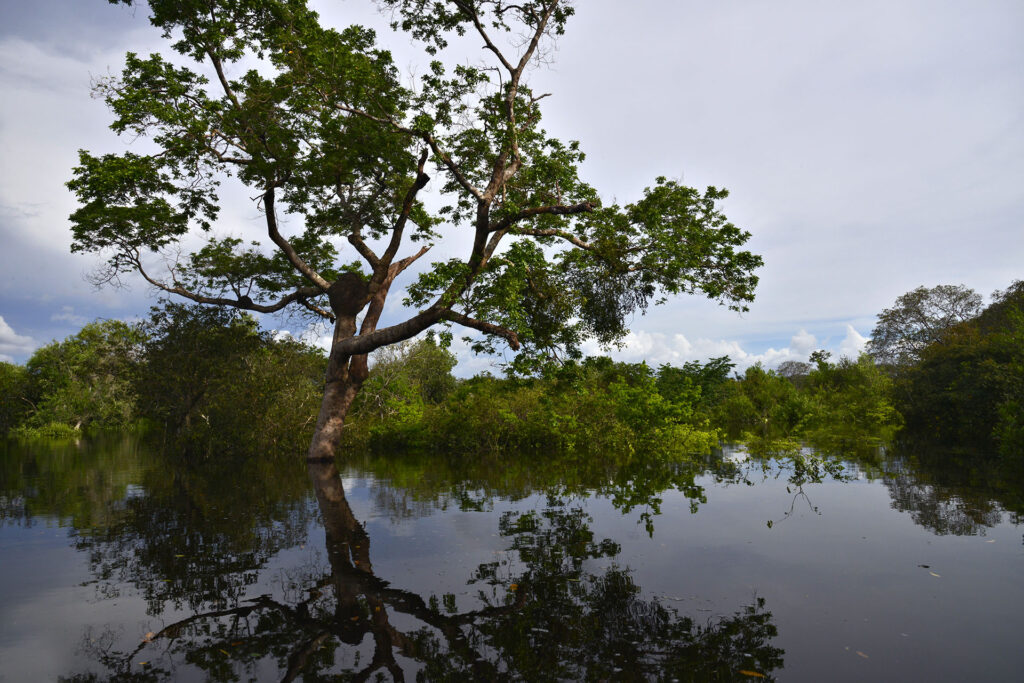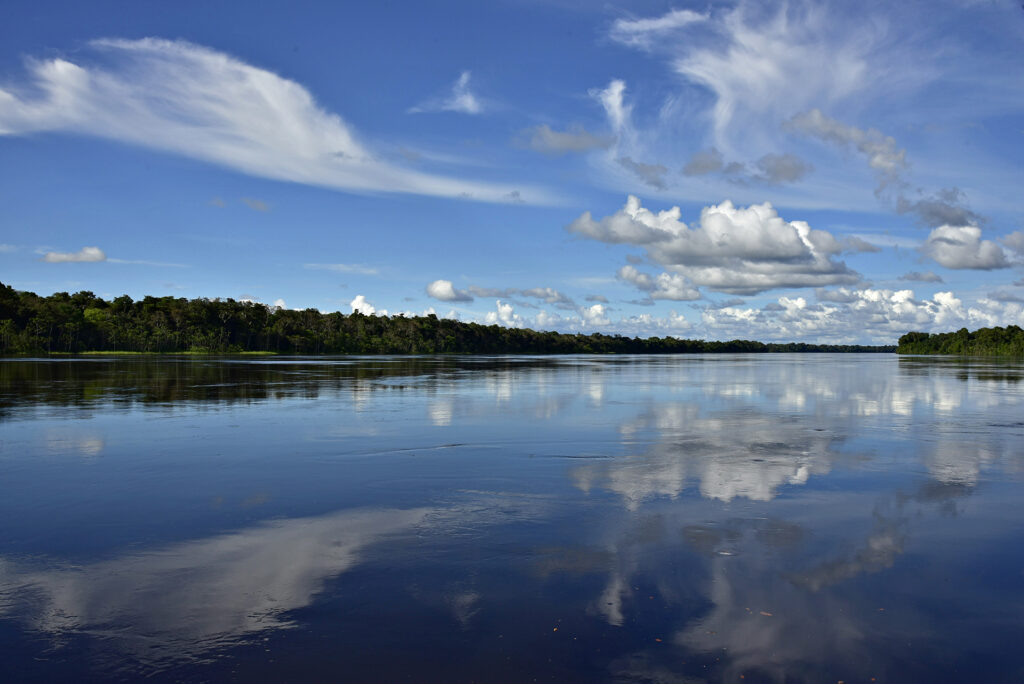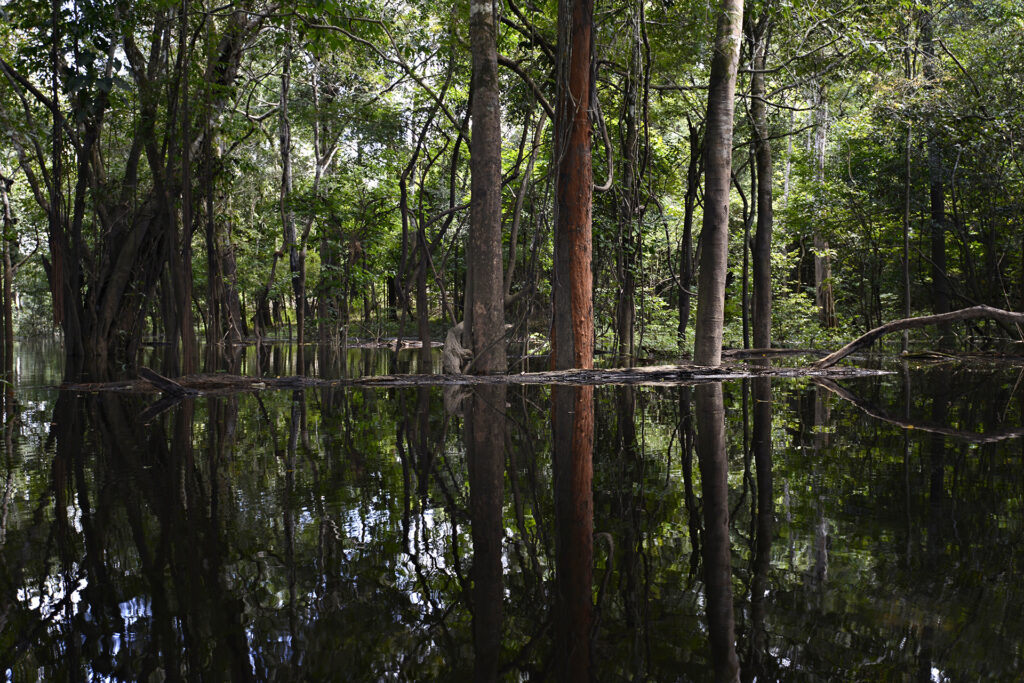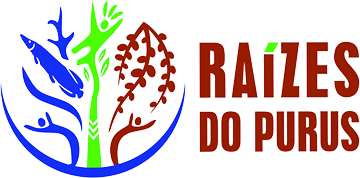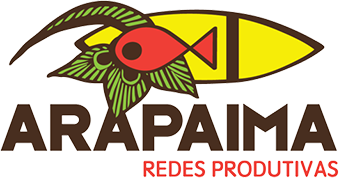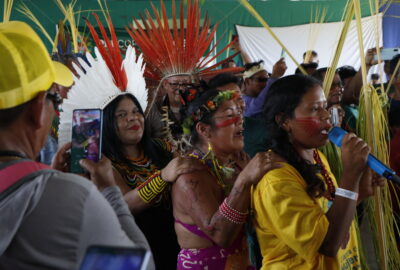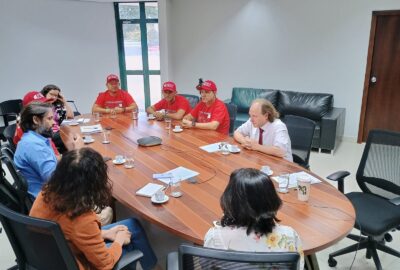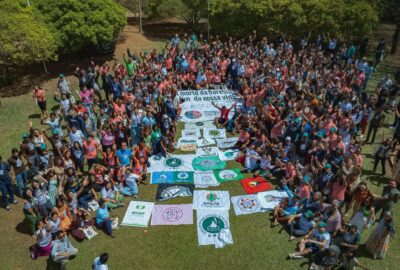
Amazonas Program
In the state of Amazonas, OPAN currently operates in the southern region, working in partnership with the Paumari Indigenous peoples of the Tapauá River, the Apurinã and Jamamadi peoples, and the Kawahiva in the Madeira River Basin. In the southwest, OPAN collaborates with the Deni of the Xeruã River in the Middle Juruá River Basin. These efforts focus on supporting socio-biodiversity value chains, territorial surveillance and protection, and strengthening Indigenous associations.
OPAN also works in partnership with the Apurinã, Jamamadi, and Paumari peoples of the Tapauá and Banawá Rivers, as well as extractivist communities from the Ituxi Extractive Reserve (Resex) in the Middle Purus River. Additionally, the program extends its support to the Tenharim in the Madeira River Basin and the Deni and Kanamari of the Xeruã River in the Middle Juruá.
Together with these communities, OPAN supports territorial management through surveillance and protection efforts, integrated fire management, and the development of socio-biodiversity value chains—including pirarucu management, agroforestry systems (AFSs), Brazil nuts, açaí, and other non-timber forest products. The program also assists in strengthening Indigenous organizations, helping them enhance administrative management and secure their rights.
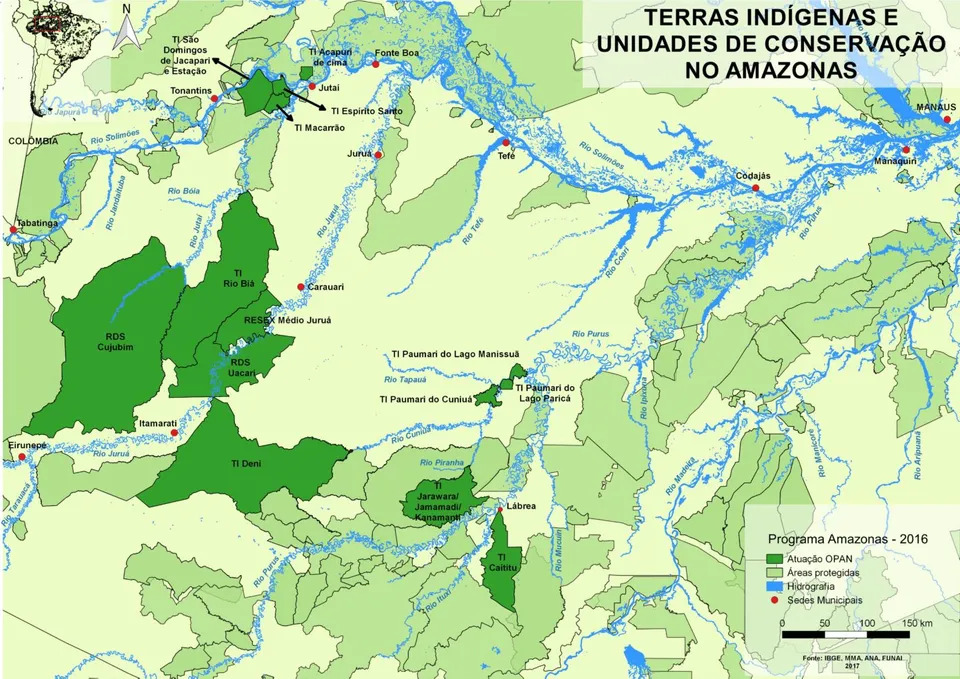
In another region of the state, in Médio Solimões, OPAN collaborates with the Association of Community Members Working with Sustainable Development in the Municipality of Jutaí (ACJ). This association leads pirarucu management efforts in partnership with the Kambeba, Tikuna, and Kokama Indigenous peoples, as well as non-Indigenous communities. ACJ’s management system accounts for the largest volume of sustainably managed pirarucu in Amazonas.
All these initiatives are carried out in collaboration with civil society organizations and networks, including the Médio Juruá Territory, the Coletivo do Pirarucu (Pirarucu Collective), and the Observatório da Castanha (Brazil Nut Observatory).
OBJECTIVES - Key focus areas of the Amazonas Program:
- Strengthening Indigenous organizations
- Environmental and territorial management.
- Monitoring biodiversity conservation.
- Territorial surveillance.
- Non-timber forest products and pirarucu value chains.
- Agroecological practices.

